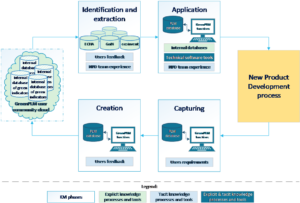UniGE and WUST Collaborate to Pioneer Green PLM Education: Shaping the Future of Sustainable Engineering
A Joint Initiative to Equip Engineers with the Tools for Eco-Friendly Product Development
In a world where manufacturing decisions hold the key to the environmental destiny of our planet, the University of Genova (UniGE) and the Wroclaw University of Science and Technology (WUST) have joined forces to create a pioneering plan for teaching Green Product Lifecycle Management (PLM). This collaboration aims to empower future engineers with the knowledge and skills to make environmentally conscious decisions throughout the product development process.
Understanding Green Engineering:
At the heart of this collaboration is the concept of Green Engineering, a practice that goes beyond traditional product lifecycle management. Green Engineering involves leveraging PLM data not only to calculate the carbon footprint of a product but also to guide design and supply chain decisions with sustainability at the forefront.
The Significance of Sustainability in Engineering:
Today’s manufacturers face a pressing need to consider the environmental impact of their decisions. Sustainability is not only a buzzword; it’s a critical aspect of responsible engineering. By embracing sustainable practices, engineers contribute to social and environmental well-being while also unlocking significant business benefits.
The Role of PLM in Sustainability:
The collaboration between UniGE and WUST recognizes the role of Product Lifecycle Management (PLM) in supporting sustainable engineering. A robust PLM foundation, combined with a digital thread, becomes the driving force behind informed and validated sustainability initiatives. The aim is to foster enterprise collaboration and amplify the benefits of green strategies.
Key Business Benefits of Green Engineering:
- Reduction of Raw Materials and Energy Consumption: Green strategies lead to optimized resource usage, minimizing raw materials and energy consumption.
- Increased Profitability through Recycling and Reuse Programs: Implementing recycling and reuse programs not only benefits the environment but also enhances the top and bottom lines of businesses.
- Market Competitiveness with Strict Regulations: Adhering to comprehensive environmental, health, and safety regulations positions companies to compete in markets with evolving and stringent standards.
- Enhanced Brand Reputation and Goodwill: Green engineering practices contribute to a positive brand image, fostering goodwill among consumers and stakeholders.
- Improved Company Culture and Employee Engagement: Sustainability initiatives create a positive work culture and engage employees in a shared commitment to environmental responsibility.
A Systems Approach to Green Engineering:
The collaborative effort between UniGE and WUST emphasizes a systems approach to green engineering through PLM. By managing products comprehensively, from individual components to electrical, mechanical, and software systems, manufacturers can automate and standardize sustainable processes. This not only results in environmentally friendly practices but also enhances cost-effectiveness and efficiency in real-time.
As UniGE and WUST pave the way for Green PLM education, they are shaping a new generation of engineers equipped to navigate the complexities of sustainable product development. The initiative is not just about education; it’s a commitment to forging a path towards a more environmentally conscious and socially responsible future in the field of engineering.


